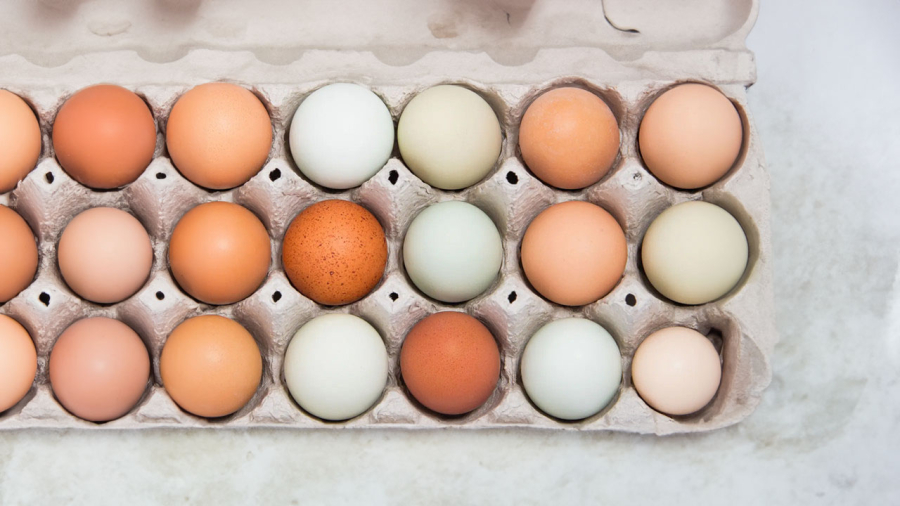At markets, brown eggs (also called red eggs) and white eggs are often priced differently. Have you ever wondered which one is more nutritious and why the price difference exists?
Are brown or white eggs more nutritious?
Expert Bethany Thayer affirms that the color of the eggshell does not determine the nutritional value of the egg. The color of the eggshell depends on the breed of the chicken. The main pigment in brown eggshells is protoporphyrin IX, while in blue eggshells it is biliverdin. In the same flock of chickens, the eggs may not have the exact same color due to factors of each individual chicken and genetic traits. Furthermore, as a chicken ages, the color of its eggshell may change. However, the nutritional composition of the yolk and the egg white of different types of eggs does not vary significantly.
Are “free-range” and “organic” eggs more nutritious?
Free-range eggs refer to hens that are allowed to spend more than 50% of their time outdoors or, in the Vietnamese context, hens that are naturally raised in open areas instead of industrial cages. Expert DeGore explains: “Some studies have shown different gut microbiota between free-range eggs and eggs from caged hens.” A few assessments have also found that free-range eggs have higher levels of healthy fats and lower levels of saturated fats.
As for organic eggs, they come from chickens that are fed with organic food without synthetic chemicals, antibiotics, or growth hormones. However, there is no significant difference in terms of nutritional value compared to other eggs.

Why do some eggs have darker yolks?
Is it true that eggs with darker yolks are more nutritious?
According to expert Thayer, “The nutritional value of an egg can only be influenced by the nutrients in the hen’s feed. The color of the yolk comes from carotenoids. Adding more carotenoid-rich extracts to the feed may result in darker yolks that are rich in carotenoids – antioxidants. Hens can also be fed with nutrient-enriched foods such as omega-3 fatty acids or vitamin D.”

So, which eggs should you choose?
DeGore suggests: “The nutritional differences between different types of eggs are generally small. Therefore, choose the type that you prefer.” Organic and free-range eggs may have some advantages over caged eggs in terms of cleanliness. However, when purchasing eggs, the most important factor is freshness.
In Vietnam, red eggs are often associated with industrial caged chickens, while white eggs are supposed to be eggs from local breeds. In reality, there are some types of eggs that taste better. Especially when local chickens are fed with rice instead of commercial feed, the eggs have a better aroma and taste. This is the reason why the prices of different types of eggs vary.
When storing eggs, avoid placing them near the refrigerator door, as they may be subject to breakage and uneven temperature. Instead, store them inside the refrigerator. If you have a large quantity of eggs, you can wrap them in newspaper or bury them in rice to maintain a stable temperature. Eggs should not be stored for too long as they can become contaminated.

































